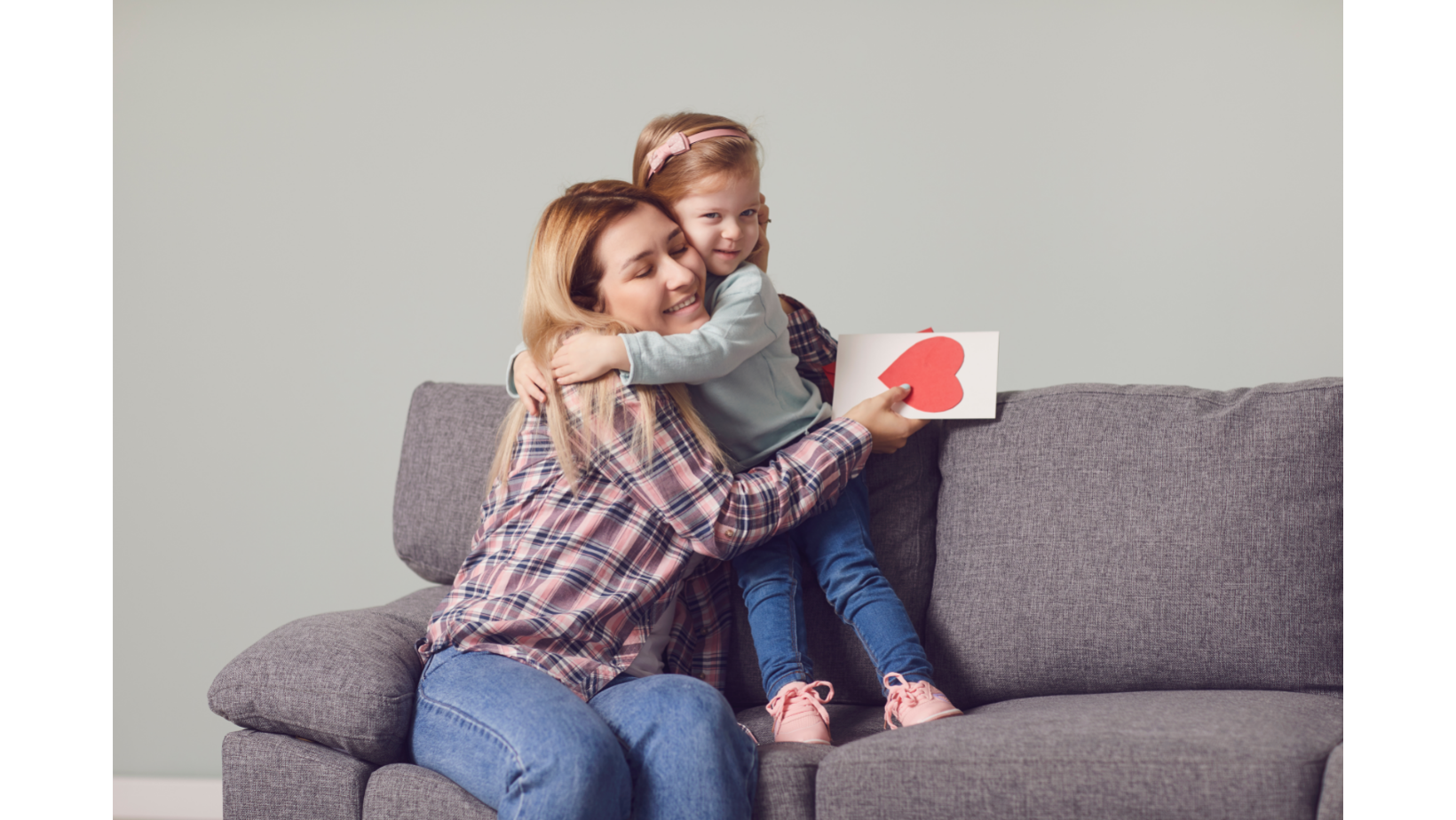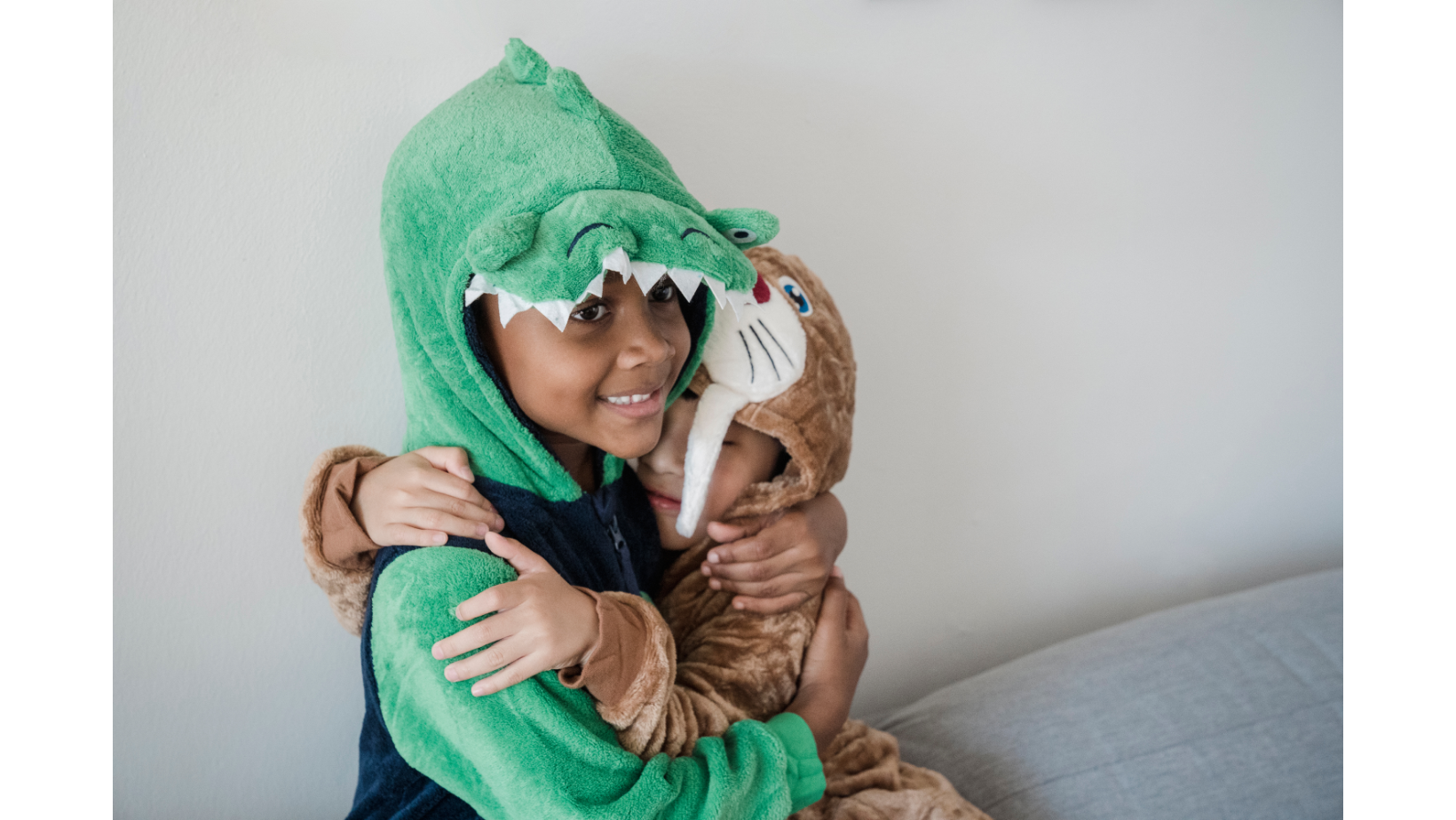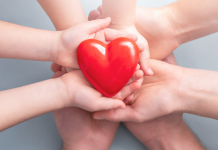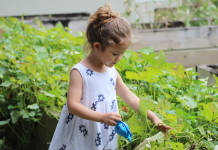Recently, my children were playing with their cousins in our basement. There was sharing, taking turns, and general harmony. But, inevitably, something happened. I heard one of my sons yell, “I said stop!” Then, there was a loud crash. In an instant, my niece was running up the stairs with tears in her eyes. She reported, through sniffles, that my son had thrown a pretend phone at the tower she was building and knocked it over.
This is a common equation isn’t it? Kid gets mad, a kid releases their anger in an unsafe and unkind way, someone is left sad and hurt. Then, the last part of the equation is me. What should I do? As you can probably imagine, I ran right down the stairs, gave my kid a stern talking to and then walked him up the stairs and said, “Now you say you’re sorry to your cousin!” My son did say he was sorry, but I noticed something- he was still angry. My niece was still sad. I could also tell, my kid didn’t mean the words he just spoke. He only said them because I made him. He was angry enough, still, to likely repeat his behavior. This forced apology didn’t feel right. Maybe there was a different way.
What is “I’m sorry”

Those two words are so powerful when the person using them really means them.
The idea of an apology is two fold. One, an “I’m sorry” conveys that you are, in fact, actually sorry. That means that, in your soul, you are truly remorseful. You have regret that you’ve caused any pain, suffering, or sadness for someone else.
Second, an apology comes with a desire within our hearts to change behavior. That could be in the form of learning from a mistake with the hope of not repeating it. Or, the change in behavior may come with next steps to make things right. If these two pieces aren’t present in an “I’m sorry,” the words don’t mean much at all. We know how that feels, don’t we? The apology that you know isn’t genuine. We adults can sniff that right out. And, kids sure can too.
Examine Your Why
The next time your child makes a mistake or maybe hurts someone with their words or body, think about the motivation behind wanting so badly for your child to apologize. What’s the why? What does having your child say they are sorry accomplish? What is it about an ‘I’m sorry’ that is so important us parents put our kids in a ‘forced apology’ situation? Pause and think about that.
It’s likely because you have a strong desire for your child to be a compassionate person. You want them to be remorseful. You want to build empathy and understanding into their heart. These are such important traits. You are a great parent for wanting to practice these things with your child! After the situation with my son, I found comfort that my why was coming from a good place. I wanted my son to know he had hurt his cousin’s feelings and I wanted him to be kinder and do better going forward. Did forcing him to apologize accomplish those goals? No, I realized, it really didn’t. Being compassionate is so much bigger than an “I’m sorry.” That meant I needed to think bigger about the idea of being sorry and what to do about it. Forced apologies were not going to happen anymore in my house.
Alternative to the Forced Apology

I need to be clear about something here— just because I no longer make my children apologize after wrongdoing does NOT mean they walk off without a consequence or next step. In fact, it’s quite the opposite. Remember the why. For me, and likely you, I am trying to grow compassionate, remorseful, and empathetic humans. I (we) want them to be these things naturally, and independently. Because of this, kids need a lot of practice, a lot of modeling, and a lot of problem-solving.
As an alternative to the forced apology, I ask my kids a question after a mistake or transgression- How are you going to make this right?
My children are then in charge of coming up with whatever they think needs to happen to make the situation better. I ask my 3-year-old this question as well as my 8-year-old. I’ve asked it to adults before as well. This question: How are you going to make this right? Allows for the creativity and thoughtfulness that the one solution apology does not.
How are you Going to Make This Right?
If we go back to the original story of my son throwing a pretend phone at his cousin’s block tower. The first time around, the story ended in a forced apology. Let’s finish it a different way this time. My niece would still be coming up the stairs to report to me what happened. My son and I would go somewhere away from the situation to allow him to calm down. He was clearly angry- those feelings are valid and need attention. Next, when he was de-escalated, here comes the question, “How are you going to make this right?”
My son could say any number of things. He may decide he’s going to offer to help her rebuild the tower or ask her if he can build her an even bigger one that she gets to knock down this time. Another solution could be that he gives her a hug or draws her a picture. Or, as is sometimes the case, he might think that saying a kind ‘I’m so sorry’ will make things better. No matter what gets thought of or decided, it was his plan, and his ideas. That is the true power of this question. Apologies are going to be suggested as ideas a lot and that’s great! Apologies are wonderful and mean so much when they come from a heartfelt place. A kids’ idea to apologize is going to sound so much more sincere than one an adult forces them to make in the moment.
Hopefully, whatever solution he chooses does make things right. We cannot control how the other person may receive it, but we can do something to control the authenticity and consideration involved in trying to right a wrong.
Try it for Yourself

As I mentioned, children need practice, modeling, and problem-solving. Your children may not have many other ideas at first besides saying they are sorry and that’s okay! They will get plenty of opportunities to practice trying a number of things that may help someone feel better. You’ll be there to support them and help them to think of ideas along the way. Model for your children the thought process of trying to decide what may make something right after you’ve done something wrong. Thinking aloud is a great way to do this. Finally, when they may have trouble deciding what they should do to help someone feel better, problem-solve together how they can begin to be empathetic thinking about the other person and trying to understand their feelings and point of view. This will take time! The authenticity and sincerity is worth it!
The next time your child makes a mistake or hurts someone with their words or body, before giving in to that urge to blurt out, “Say you’re sorry,” try removing your child from the situation for a few minutes allowing them to calm down and ask, “How are you going to make this right?” See what happens next!
Want to keep the positivity and kindness going? Check out these resources!










